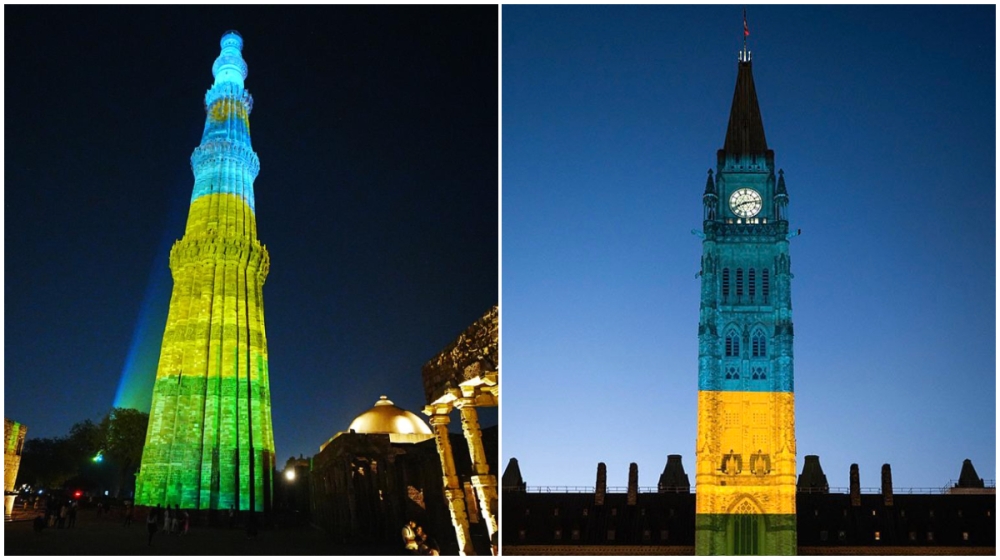

As Rwanda began the Mourning Week of the 30th commemoration of the 1994 Genocide against the Tutsi, on the night of Sunday, April 7, towers and important monuments in different countries displayed Kwibuka30, and others were lit with colours of the Rwandan flag, as a sign of solidarity.
In the Indian capital New Delhi, Qutb Minar, one of the tallest monuments and a UNESCO World Heritage Site, was illuminated with the colours of the Rwandan flag, to show solidarity with Rwandans as they reflected on the Genocide, one of the darkest periods in history during which more than one million innocent lives were lost in 100 days.
ALSO READ: Rwandans cannot be indifferent to roots of Genocide – Kagame
In the French capital Paris, the Eiffel Tower displayed KWIBUKA 30 as the European country joined Rwanda in the commemoration. France’s president, Emmanuel Macron, sent his message of solidarity as his foreign minister Stephane Sejourné attended the Kwibuka ceremony in Kigali, alongside dozens of heads of state and government, and heads of international organisations.
In the Canadian capital Ottawa, the Peace Tower was also lit up with the colours of the Rwandan flag, in honour of the victims of the 1994 Genocide against the Tutsi.
ALSO READ: Rwanda marks Kwibuka30
In the Ethiopian capital Addis Ababa, the headquarters of the Commercial Bank of Ethiopia were illuminated in the colours of the Rwandan flag and the year 1994. Ethiopia’s prime minister Abiy Ahmed and First Lady Zinash Tayachew were in Kigali for the commemoration ceremony.
ALSO READ: Kagame commends Czech Republic’s role in stopping genocide
In Senegal, the African Renaissance Monument in the capital Dakar was also illuminated with the colours of the Rwandan flag.
Similarly, the Benin Amazone monument in Cotonou, Benin's largest city, was illuminated with the colours of the Rwandan flag.
In Rwanda, the Mourning Week was officiated by President Paul Kagame and First Lady Jeannette Kagame, who laid wreaths at Kigali Genocide Memorial and lit the Flame of Remembrance, which will burn for the next 100 days of commemoration.
The Mourning Week will be closed on April 13, but commemoration activities will continue until July 3, the eve of Liberation Day, which marks the day the Rwanda Patriotic Army stopped the Genocide and ushered in a new era of national unity.


